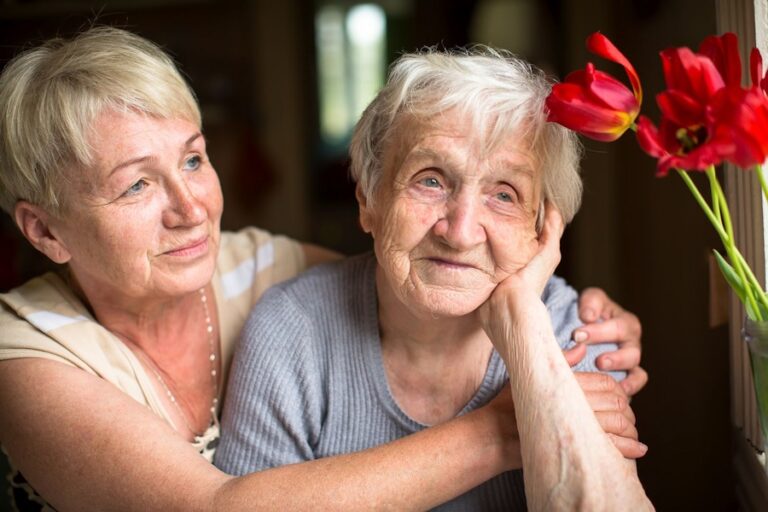
Navigating Your Journey as a First-time Caregiver
Nobody looks forward to the day when a loved one needs someone to assume the role of caregiver. If you are the person who will be taking on the responsibility, you are undoubtedly concerned, probably somewhat intimidated, and perhaps even overwhelmed by the thought.
Whether the role of caregiver has been thrust upon you suddenly or anticipated for quite some time, it is a life change that can be difficult to prepare for or even imagine how to begin. However, as difficult as the challenge may seem at the present moment, you will find your way along the unfamiliar path.
It may take time and experience to adjust to the new terrain. And it will certainly take plenty of love, strength, and courage, along with some help from people around you. But, you will learn… your role will evolve… and you will find ways to manage whatever challenges your journey may hold. There will be difficult and trying moments, of course, but there will be moments that are rewarding, gratifying, and joyful as well.
Believe in yourself and know that you are not alone on this journey. Help is available. It might come from your family and friends, it may come from resources in your community, or both. Seek out and make use of whatever avenues of assistance are available to you. We hope the following tips from other caregivers may be of some value to you.
Some helpful tips from experienced caregivers…
- Talk with your loved one about the situation in advance, if possible. If you have the opportunity and some advanced warning, talk with your loved one about how he or she would like things to be handled when the time comes when caregiving is needed. Ask how your loved one feels about your role as the person who will be providing that care. Encourage your loved one to share his or her desires, concerns, expectations, and fears about the possibility of needing a caregiver.
- Seek out and accept help from family and friends. Talk with the other people in your loved one’s life about the roles they can play in his or her care. There are countless ways family members of all ages can share in caregiving responsibilities. There will always be calls to make, errands to be done, transportation needs to be arranged, meals to be prepared, etc. Even those folks who do not live nearby can help by staying in touch and taking on the things that can be handled from a distance, like writing emails, doing research, paying bills, and entertaining your loved one with phone calls or video chats. Try to include other people right from the start so they feel involved and needed.
- Learn as much as possible about your loved one’s health condition(s). The more you know about the experience your loved one is going through, the better able you will be to meet his or her needs. Having an accurate picture of what to expect as you move forward will help you deal with challenges and avoid problems. Ask your loved one’s physician to suggest educational resources. If you use the Internet as a research tool, make sure you are visiting trustworthy sites where the information provided is factual and reliable. Lots of information on the Internet is inaccurate.
- Become an active player on your loved one’s health care team. Get to know and build relationships with the medical team involved in your loved one’s care. Know their names, professions, and their responsibilities on the care team. Ask them questions and share information about how your loved one is managing. Make sure you have and understand all information about any care you will be providing and medications your loved one will be taking, as well about his or her health insurance coverage and medical benefits.
- Make use of all resources. Find out about local resources and take advantage of them. Senior centers, churches, community groups, and other organizations may offer services for your loved one, such as adult day programs or meal delivery. They may offer support for you as well, such as caregiving classes, seminars, and support groups. If available, consider joining a caregiving support group. Support group members are all on the same journey. They share their concerns, experiences, lessons learned, and valuable tips with each other. If you can’t get to a support group in person, you may want to try an online community where people exchange ideas and advice via the Internet.
- Involve your loved one in decisions and ask for his or her opinion. While caring for your loved one, make sure to keep in mind how difficult it can be for people to lose their independence and have to depend on other people. Try not to jump in and take total control. Let your loved one make as many decisions as possible, and come up with different ways to give the person a sense of control or power whenever it is feasible. Keep your loved one informed, and get his or her input about whatever is going on. If possible, talk with your loved one when setting up appointments, putting together schedules, inviting people over, or altering his or her environment.
- Don’t forget about your own health. It’s important that you remain healthy and strong so you can continue to be there to care for your loved one. Very often, caregivers put their own health on the back burner to concentrate their attention on their loved one’s needs. But that does not do anyone any good. Make sure you are getting enough sleep, eating right, exercising, and having regular medical checkups.
- Pay attention to your emotional well-being. As a caregiver, you are going through a stressful experience. Don’t expect too much of yourself. No matter how much you love the person under your care, you will probably feel a range of difficult emotions, from resentment and anger to guilt and sadness. Be kind to yourself. Give yourself outlets for your emotions. Learn some stress-management techniques or try meditation or yoga. Find quiet moments to let yourself unwind and refresh your body, mind, and spirit.
- Take breaks. You are only human, so do not try to be a superhero. Set limits for yourself and take breaks from your responsibilities as a caregiver so you don’t burnout. Make sure you continue to spend time doing the things you’ve always enjoyed doing. Ask other family members to relieve you for a while. Visit with friends. Keep up with your hobbies. Go to the movies. Get away for a weekend. If you do not have a support system of family and friends to help out, look for resources in your area that offer assistance for caregivers. Check with your local senior center, Area Agency on Aging, or public library.
- Have fun with your loved one. Try to find and make moments when the two of you can enjoy each other’s company in ways that are unrelated to your role as the person’s caregiver. You are still the same people you have always been. There will be challenges and uncomfortable moments, of course, but do not let them take over your lives. Keep your bond strong. Talk together. Smile together. Laugh together. Love each other.


Age Adds Flavor
We are not old, we are seasoned!
Don’t forget to visit us on FACEBOOK!
